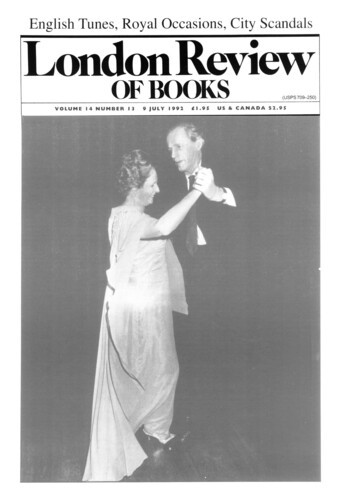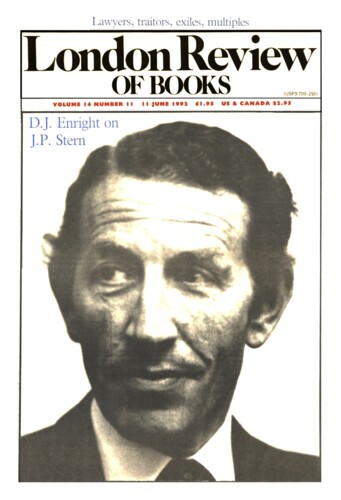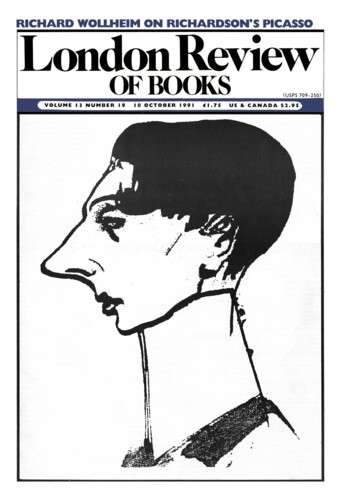Scots wha hae gone to England
Donald Davie, 9 July 1992
In books that go on about how the English have imposed their language and their manners on other English-speaking nations (Australian, Canadian, Scottish and Welsh and Irish, others), what is striking is how that Anglocentrism, allegedly located in London and Oxbridge mostly, is supposed to be deeply satisfying to the English themselves. Robert Crawford, who pursues the argument on behalf of the Scots, avoids this mistake, detecting in a provincial Englishman like Tony Harrison a fury and resentment not surpassed by any Scot. But this is hardly a novel perception, for Harrison has achieved fame on the strength of it. In fact, it’s hard to find any English writer who isn’t provincial in origin; I’m as much a West Riding product as Tony Harrison, though I haven’t traded on it much. The outcome is obvious and ridiculous: if I have as much right to wear a chip on my shoulder as any Australian or Aberdonian, then who is left to man the supposedly overbearing metropolis, unless it is Kingsley Amis and John Betjeman? The ramparts so frailly manned should have given way long ago to the armies massed against them. What Crawford doesn’t realise is that this indeed has happened; he is sounding the bugle for an assault on a fortress that surrendered years ago.




